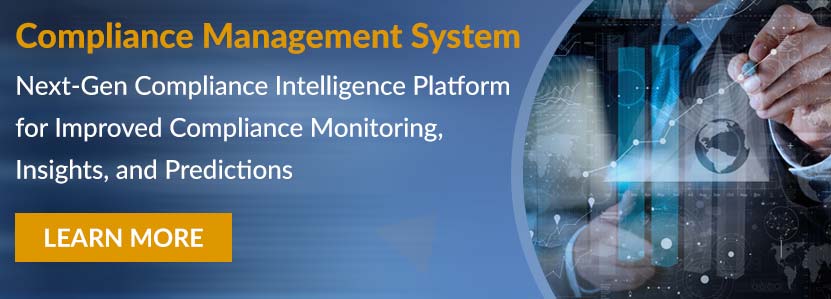Home/ Blog / The Impact of ESG on Compliance Management
ESG (Environmental, Social, and corporate Governance) is a major topic of discussion in the business world and for good reason; ESG is not just a new trend or buzzwords that will die out in a few years. ESG is a shift in the way businesses are managed and regulated. It promises to upend many existing business assessments and will require new risk and compliance frameworks to be built. Therefore, it is important for everyone in the compliance and risk domain to understand what ESG means and why it has become so popular.
The Need for ESG
While ESG is becoming very popular now, it is not a new concept at all. ESG simply extends the factors that are included in the assessment of an organization. Most of the time businesses are assessing purely on the basis of their ability to generate a profit. If two businesses generate a profit of $2 million with an investment of $1 million, both may appear to be similarly profitable. However, under ESG principles there is a lot more that can be used to assess both businesses and find the difference between them.

For instance, consider that both businesses are in different domains. One is a chemical factory that is known for environmental problems. The other business also generates the same profit but uses sustainable practices and does not harm the environment. While the financial profit of both may be the same, the business that is able to generate the same profits without damaging the environment can be considered superior.
ESG will ensure that businesses are not judged solely on the basis of the money they make, but also on how they affect their surroundings with the money they make.
ESG is Not a New Concept
While ESG is being talked about more seriously now and there is a focus on creating regulations based on ESG, it is not a new concept in the modern business world. Many businesses have special standards that account for social factors. The Fair-Trade stamp seen on many goods is to certify that the business did not use any illegal labor (such as slavery or child labor) in any part of the production process.
The Sullivan Principles are well known in the business world. The Sullivan Principles were created in response to the South African apartheid. Businesses that adopted the Sullivan Principles refused to do business with entities that were a part of the apartheid or were benefiting from the apartheid. Businesses have often strived to ensure that they do not get involved in unethical practices. A lot of businesses may do it out of concern about their image.
Climate Change and ESG
While ESG as a concept may not be a new thing, what has changed is the main motivation behind it. Previously most social accountancy movements focused on slave labor, child labor, and other practices that harmed the society. These are all a part of ESG too, but climate change has been added as one of the most significant factors in assessing an organization aside from its financial performance. This has been driven by an increased global awareness and activism about the environmental fallout from commercial activities.
Compliance management systems will provide a lot of help to businesses that want to quickly comply with any new regulations and they are already being updated to make their framework compatible for ESG. Share on XThere are still concerns and even some controversies in the climate change domain, which is why many businesses are not fully onboard with the direction EGS seems to be taking. However, it is important to note that any regulations that are created will need to be passed by several government bodies. The most likely outcome is that most climate related legislation and regulations will focus on immediate and trackable collateral damage caused by businesses instead of focusing on the global impact of businesses.
It is easy for the government to monitor a specific business which creates chemicals that are hazardous to inhale. It is impossible for the government to determine the share of a single business in the way climate is changing at a local or even global scale. This means that EGS will simply require businesses to be more vigilant.
Compliance management systems will provide a lot of help to businesses that want to quickly comply with any new regulations. Compliance management systems are already being updated to make their framework compatible for ESG. While some compliance tools are focusing specifically on ESG, there is also a more gradual change among the most popular compliance platform where they are slowly introducing more ESG related tools and features.
Interested in seeing how a compliance management platform can help your business prepare itself for ESG compliance? Get in touch with our compliance experts for a demonstration of Predict360, the American Bankers Association endorsed solution for compliance management.
Request a Demo
Complete the form below and our business team will be in touch to schedule a product demo.
By clicking ‘SUBMIT’ you agree to our Privacy Policy.




